Address
304 North Cardinal
St. Dorchester Center, MA 02124
Work Hours
Monday to Friday: 7AM - 7PM
Weekend: 10AM - 5PM
Address
304 North Cardinal
St. Dorchester Center, MA 02124
Work Hours
Monday to Friday: 7AM - 7PM
Weekend: 10AM - 5PM
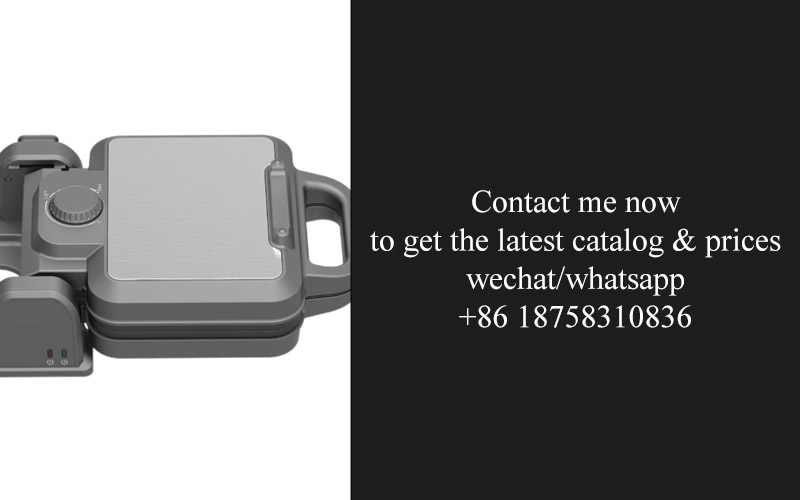
In today’s interconnected global market, the European Union stands as a beacon for companies looking to expand their reach. For kitchen appliance brands, entering the EU market means navigating a complex web of regulations and certifications. One such crucial certification is the UKCA (United Kingdom Conformity Assessment), which has become a key to unlocking the vast potential of the EU market. This article delves into the intricacies of the UKCA certification process, the benefits of streamlined certification, and how brands can successfully navigate the challenges to tap into the EU’s dynamic consumer landscape.
The European kitchen appliance industry has experienced a remarkable surge in popularity across the global market. With a rich heritage of innovation and quality, European brands are now capturing the hearts and kitchens of consumers worldwide. This rise can be attributed to several key factors that have propelled European kitchen appliances to new heights.
European appliances are renowned for their sleek designs and advanced technology. From the minimalist aesthetics of German dishwashers to the cutting-edge features of Italian ovens, these products are not just functional but also a statement of style. Consumers are increasingly seeking appliances that blend form and function, and European brands have stepped up to deliver.
Quality is another cornerstone of the European kitchen appliance market. The rigorous standards and attention to detail that characterize European manufacturing processes ensure that these products are built to last. This longevity is a major draw for consumers who are looking for appliances that will stand the test of time and maintain their value.
The sustainability movement has also played a significant role in the growth of European kitchen appliances. Brands are increasingly focusing on eco-friendly designs and energy-efficient technologies. This shift aligns with the global trend towards sustainability and resonates with environmentally conscious consumers who are willing to invest in products that reduce their carbon footprint.
The integration of smart technology has been a game-changer for the European kitchen appliance industry. Smart appliances offer convenience, connectivity, and control like never before. Users can now manage their kitchen appliances remotely, track energy consumption, and even receive maintenance reminders. This level of connectivity is transforming the way people interact with their kitchen technology.
The European Union’s single market has also been a catalyst for growth. With a standardized regulatory environment, European brands can easily expand their operations across member states. This seamless integration has opened up new markets and opportunities for growth, making the EU a prime destination for European kitchen appliance manufacturers.
Additionally, the global trend towards healthier living has bolstered the European kitchen appliance market. European appliances are often associated with healthier cooking methods, such as induction cooktops and steam ovens, which are favored by health-conscious consumers. The industry has responded by offering a wide range of products that cater to these preferences.
The rise of online shopping has further fueled the growth of European kitchen appliances. With the convenience of shopping from anywhere in the world, consumers are now exposed to a wider array of European brands and products. Online marketplaces have become a key channel for European appliance manufacturers to reach new customers.
Despite these successes, the European kitchen appliance industry faces challenges. Competition from other regions, such as Asia, is fierce, and prices can be a barrier for some consumers. However, European brands are responding by focusing on innovation and value-added features that justify their premium pricing.
Innovation is a cornerstone of the European kitchen appliance industry. Continuous research and development efforts are driving the creation of new products and technologies. From smart refrigerators that can order groceries to cookware that adjusts to the user’s cooking style, European brands are leading the charge in kitchen innovation.
The European kitchen appliance industry’s rise in the global market is a testament to the power of quality, design, sustainability, and technology. As the industry continues to evolve, it is poised to maintain its position as a leader in the kitchen appliance sector, delivering products that not only meet the needs of consumers but also exceed their expectations.

The European kitchen appliances industry has seen a surge in popularity worldwide, driven by a blend of innovative designs, eco-friendly features, and a growing awareness of the importance of quality in home cooking. From sleek ovens and high-tech refrigerators to smart dishwashers and induction cooktops, European brands are capturing the hearts and kitchens of consumers around the globe. This upward trend is not just a reflection of the products’ quality, but also of the stringent standards that European manufacturers adhere to, which are now becoming increasingly relevant for those looking to enter the European Union (EU) market.
The UKCA (United Kingdom Conformity Assessed) mark, a certification that came into effect on January 1, 2021, is a crucial step for companies aiming to sell their products in the EU post-Brexit. This certification replaces the CE mark, which was the standard for conformity assessment in the EU market before the UK’s exit. Understanding the nuances of the UKCA certification is essential for any company serious about entering or maintaining its presence in the EU market.
To start with, the UKCA mark is not just a sticker on a product; it’s a guarantee that the appliance meets all the safety and performance requirements set by the EU. It’s a comprehensive certification that covers not only the product itself but also its manufacturing process, ensuring consistency and reliability. This dual approach is particularly important for kitchen appliances, which are not just consumer goods but also carry significant health and safety implications.
One of the key differences between the UKCA and the CE mark is the scope of the certification. While the CE mark was valid across all EU member states, the UKCA is specifically for products intended for the UK market. However, for companies looking to enter the broader EU market, the UKCA mark is a stepping stone, as it aligns with the EU’s New Approach Directives, which are foundational to the CE mark.
Navigating the UKCA certification process requires a thorough understanding of the regulations. For kitchen appliances, this means ensuring that the products comply with a range of EU directives, such as the Low Voltage Directive (LVD), the Electromagnetic Compatibility (EMC) Directive, and the Radio Equipment Directive (RED). These directives cover everything from electrical safety to energy efficiency and environmental protection.
Another important aspect of the UKCA certification is the role of Notified Bodies. These are independent organizations recognized by the EU to carry out conformity assessments. For kitchen appliance manufacturers, working with a reputable Notified Body is crucial to ensure that all compliance requirements are met. These bodies not only test the products but also help in the assessment process, providing guidance on how to meet the necessary standards.
Understanding the certification process also involves knowing the different types of conformity assessments available. These range from self-declaration, where the manufacturer asserts compliance, to full assessment and certification by a Notified Body. The choice of assessment method will depend on the product’s complexity and the level of risk associated with its use.
For kitchen appliances, the certification process often requires physical testing, such as verifying electrical safety, thermal performance, and mechanical durability. Additionally, documentation is key, as manufacturers must provide evidence of compliance with all relevant regulations. This includes technical drawings, product specifications, test reports, and more.
The UKCA certification is not just a regulatory requirement; it’s an opportunity for manufacturers to demonstrate their commitment to quality and safety. By obtaining this certification, companies can enhance their brand reputation, appeal to consumers who value compliance, and potentially gain a competitive edge in the EU market.
Moreover, the certification process is not static. It evolves with new technologies and changing regulations. For example, the RED directive has been updated to include new requirements for radio equipment, which kitchen appliances that incorporate wireless technologies must comply with. Staying abreast of these changes and adapting certification processes accordingly is vital for manufacturers to remain compliant.
In conclusion, the UKCA certification is a necessity for EU market entry, particularly for the kitchen appliances sector. It’s a comprehensive process that demands a deep understanding of EU regulations, adherence to stringent safety and performance standards, and collaboration with authorized bodies. By successfully navigating this certification, companies can confidently enter the EU market, knowing that their products meet the highest standards of quality and safety.

In the ever-evolving landscape of kitchen appliance certification, turnkey solutions have emerged as the new norm. These comprehensive packages offer a streamlined and efficient way for manufacturers to navigate the complex maze of compliance and certification requirements. Let’s delve into why turnkey solutions are becoming the go-to choice in this domain.
Turnkey solutions provide a one-stop shop for certification needs. Traditionally, companies had to deal with multiple agencies and regulations, which could be time-consuming and costly. By opting for a turnkey service, manufacturers can entrust their certification process to a single provider, ensuring a cohesive and coordinated approach from start to finish.
The complexity of certification can be daunting, especially for those not well-versed in the intricacies of the process. Turnkey solutions alleviate this concern by offering expert guidance and support. From understanding the technical specifications to ensuring compliance with the latest EU regulations, these services bring in seasoned professionals who are well-versed in the requirements of kitchen appliance certification.
Time is of the essence in the fast-paced appliance industry. Turnkey solutions recognize the importance of speed-to-market and prioritize efficiency. They have established processes and relationships with certification bodies that enable them to expedite the certification process without compromising on quality. This is particularly crucial for manufacturers looking to stay ahead of the competition and meet tight product launch deadlines.
Cost management is a significant factor for any business, and turnkey solutions help optimize expenses. By consolidating various certification activities into a single package, companies can benefit from volume discounts and cost savings. Additionally, turnkey providers often have access to resources and expertise that could otherwise be prohibitively expensive for individual manufacturers to acquire.
One of the key advantages of turnkey solutions is the reduced risk involved. Navigating the certification process can be fraught with uncertainty, as regulations and standards are subject to change. Turnkey providers stay abreast of these changes and adjust their services accordingly, ensuring that manufacturers are always in compliance. This reduces the risk of product recall or legal repercussions due to non-compliance.
Turnkey solutions also offer a level of flexibility that is often missing in traditional certification processes. They can be tailored to the specific needs of each manufacturer, whether it’s a small startup or a large multinational corporation. This flexibility allows for a more personalized approach to certification, ensuring that all unique aspects of a product are addressed.
In today’s global market, sustainability is a growing concern. Turnkey solutions often include sustainability assessments and guidance, helping manufacturers to not only comply with environmental regulations but also to demonstrate their commitment to eco-friendly practices. This not only benefits the environment but can also enhance a company’s brand reputation.
Turnkey providers also offer post-certification support, which is crucial for maintaining compliance over time. They can assist with ongoing regulatory updates, ensuring that manufacturers stay compliant even as new standards and regulations are introduced. This ongoing support helps to avoid potential compliance issues and keeps the product on the shelves.
Lastly, turnkey solutions foster a sense of partnership between the manufacturer and the certification provider. By working closely together throughout the certification process, both parties can build a strong relationship that can lead to long-term collaboration. This partnership can be invaluable in navigating the challenges of the kitchen appliance industry.
In summary, turnkey solutions are the new norm in kitchen appliance certification due to their comprehensive nature, expert guidance, time efficiency, cost-effectiveness, reduced risk, flexibility, sustainability focus, ongoing support, and partnership opportunities. As the industry continues to evolve, these solutions will likely become even more integral to the success of manufacturers looking to enter and thrive in the EU market.
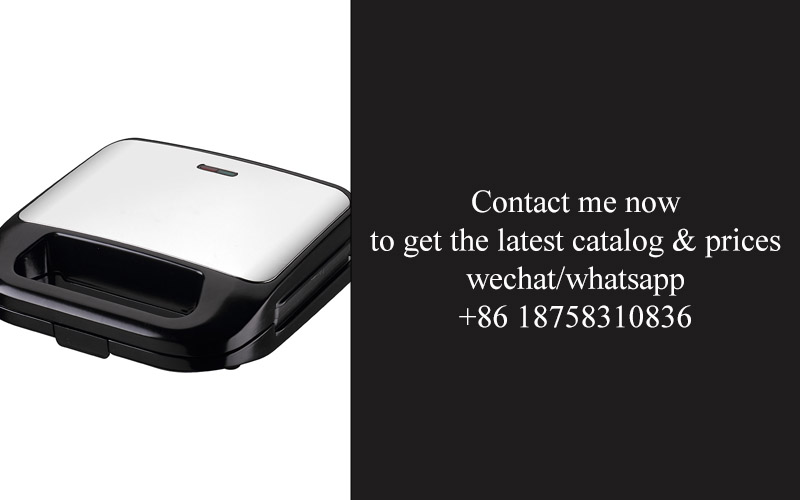
Navigating the complexities of certification can be a daunting task, especially for kitchen appliance manufacturers looking to enter the EU market. The UKCA (United Kingdom Conformity Assessment) certification process, which is now a prerequisite for selling products in the EU post-Brexit, has become a focal point for many. A turnkey solution for this certification offers a streamlined approach, characterized by several key features that make it an attractive option for businesses.
Efficient Project ManagementOne of the standout features of a turnkey UKCA certification process is the efficiency of the project management. Turnkey providers often have dedicated project managers who are well-versed in the certification process. They oversee every aspect, from initial assessments to final certifications, ensuring that the process moves smoothly and without unnecessary delays.
Comprehensive SupportTurnkey solutions typically include comprehensive support throughout the certification journey. This support can range from providing guidance on the technical requirements to offering assistance with documentation and compliance issues. The aim is to ensure that the manufacturer is well-equipped to meet all the necessary standards.
Customized ApproachEvery kitchen appliance brand has unique needs and challenges. A turnkey certification process understands this and offers a customized approach. Whether it’s a specialized product or a specific market segment, the turnkey provider can tailor the certification process to fit the brand’s specific requirements.
Regulatory ComplianceThe core of the UKCA certification process is ensuring that kitchen appliances meet the strict regulatory standards set by the EU. A turnkey solution ensures that all compliance aspects are thoroughly addressed, from product design to labeling and marketing materials. This feature is crucial in avoiding potential legal issues down the line.
Quality AssuranceTurnkey providers often include quality assurance checks as part of the certification process. These checks ensure that the products not only meet the regulatory standards but also maintain a high level of quality and safety. This aspect is particularly important for kitchen appliances, where safety is paramount.
Cost ManagementCertification can be an expensive process, involving various fees and potential costs for non-compliance. Turnkey solutions often come with a fixed cost, making budgeting and financial planning easier for manufacturers. This feature can help businesses allocate their resources more effectively.
Documentation and ReportingA turnkey UKCA certification process is meticulous in its documentation and reporting. This includes detailed records of every step taken, from initial assessments to final certifications. Having a comprehensive documentation trail is not only a regulatory requirement but also provides peace of mind for the manufacturer.
Training and EducationTurnkey providers often offer training and educational resources to help manufacturers understand the certification process better. This can be particularly beneficial for companies that are new to the EU market or are unfamiliar with the specific requirements of UKCA certification.
Post-Certification SupportOnce the certification is obtained, the turnkey provider may continue to offer support. This can include assistance with ongoing compliance, market updates, and any future changes to the certification process. This ongoing support is a valuable feature that helps maintain the integrity of the certification over time.
Networking and ResourcesTurnkey solutions often provide access to a network of resources, including industry experts, regulatory bodies, and other manufacturers. This networking can offer valuable insights and opportunities for collaboration, which can be beneficial for the long-term success of the brand.
Sustainability FocusIn today’s market, sustainability is a key consideration. A turnkey UKCA certification process may include a focus on sustainable practices and materials, ensuring that kitchen appliances are not only compliant but also environmentally friendly.
By incorporating these key features, a turnkey UKCA certification process becomes a comprehensive, stress-free solution for kitchen appliance manufacturers. It takes the guesswork out of compliance and provides a clear path to entering the EU market with confidence.
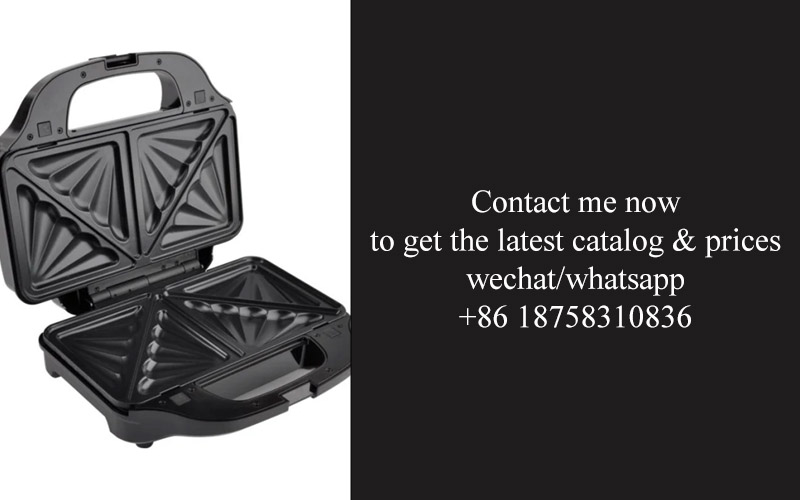
Navigating the complex world of certifications can be a daunting task, especially for kitchen appliance brands looking to expand into new markets. A streamlined certification process can offer a host of benefits that not only save time and resources but also enhance the brand’s reputation. Here’s a closer look at some of the key advantages:
Enhanced Efficiency and Reduced DelaysStreamlined certification processes are designed to be efficient, minimizing the time it takes to get your kitchen appliances up to the required standards. By cutting down on bureaucracy and red tape, brands can avoid protracted delays that could otherwise disrupt their production schedules and market entry timelines.
Cost SavingsThe streamlined approach often leads to significant cost savings. By eliminating unnecessary steps and simplifying the certification process, brands can reduce the expenses associated with certification, including labor, materials, and administrative fees. This cost-effectiveness can be particularly beneficial for smaller businesses or those operating on tight profit margins.
Consistency in Quality AssuranceA streamlined certification process ensures that all aspects of quality assurance are consistently met. This means that every kitchen appliance that passes through the process will meet the same high standards, providing a level of predictability and trust that consumers appreciate.
Enhanced Market AccessFor kitchen appliance brands aiming to enter new markets, a streamlined certification process can be a game-changer. It allows brands to access new regions with greater ease, as the process is optimized to meet the specific requirements of each market. This can open doors to international trade and expand the brand’s global footprint.
Improved Customer SatisfactionWhen kitchen appliances are certified quickly and efficiently, it often translates to faster delivery times for consumers. This can lead to higher levels of customer satisfaction, as customers receive their products sooner and can enjoy the benefits of the latest kitchen technology without unnecessary wait times.
Compliance with Regulatory StandardsA streamlined certification process ensures that all products meet the necessary regulatory standards. This compliance is critical for kitchen appliance brands, as it can prevent legal issues and penalties that could arise from selling non-compliant products.
Enhanced Brand ReputationBy adopting a streamlined certification process, kitchen appliance brands can build a reputation for reliability and compliance. This can be a significant differentiator in a competitive market, as consumers are more likely to trust and choose brands that prioritize quality and adherence to regulations.
Flexibility in Product DevelopmentStreamlined certification allows for greater flexibility in product development. Brands can iterate on their designs and features with the knowledge that the certification process will be efficient, enabling them to bring new and innovative products to market more rapidly.
Access to Technical ExpertiseMany streamlined certification services offer access to a team of technical experts who can guide brands through the process. This expertise can be invaluable in ensuring that all technical aspects of the kitchen appliances are up to par with the required standards.
Support for International ExpansionFor brands looking to expand internationally, a streamlined certification process can provide ongoing support. This includes assistance with understanding local regulations, navigating customs, and ensuring that products are ready for market entry.
In conclusion, the benefits of a streamlined certification for kitchen appliance brands are multifaceted. From reducing costs and improving efficiency to enhancing market access and customer satisfaction, the streamlined process can be a crucial factor in the success of a brand’s expansion efforts. By focusing on these advantages, brands can position themselves as leaders in the industry, ready to meet the demands of a global marketplace.
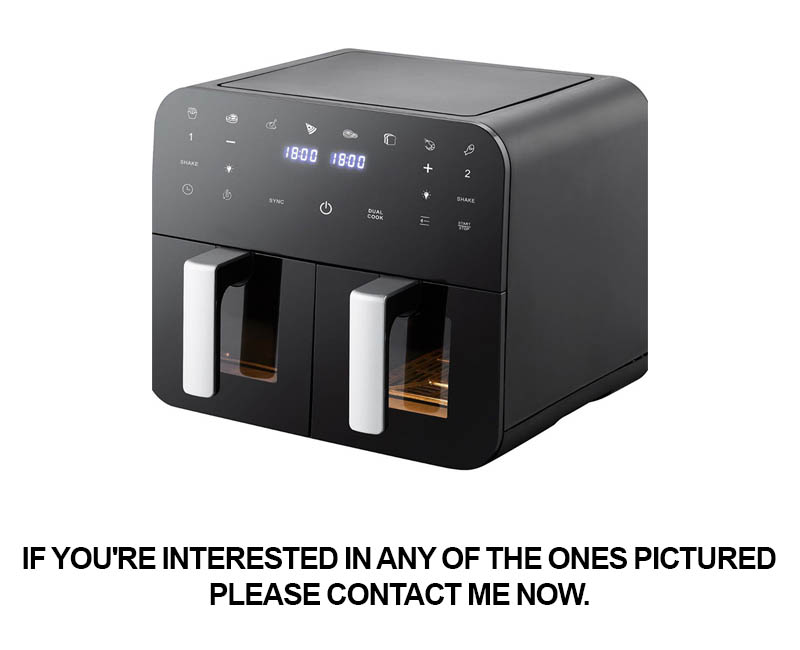
In the ever-evolving landscape of kitchen appliance manufacturing, brands are increasingly turning to turnkey UKCA certification solutions to ensure their products meet the stringent regulatory standards required for entry into the EU market. Here are some success stories that showcase the benefits of such comprehensive services:
A leading manufacturer of smart kitchen appliances had been facing challenges in navigating the complex UKCA certification process. With the help of a turnkey solution provider, they were able to streamline their certification journey, resulting in a faster time-to-market for their innovative line of products.
The company’s product range included a variety of high-tech cookers, refrigerators, and dishwashers, all of which needed to comply with the UKCA (UK Conformity Assessed) mark. The turnkey service they chose offered a one-stop shop for all certification needs, from initial compliance assessments to final approval.
Comprehensive Support from Start to FinishThe turnkey provider conducted a thorough review of the manufacturer’s products, identifying any potential compliance issues early on. They then guided the company through the necessary modifications and provided technical expertise to ensure that all products would meet the UKCA standards.
Time and Cost EfficiencyBy consolidating all certification activities under one roof, the turnkey service significantly reduced the time and resources required for the certification process. This was particularly beneficial for the manufacturer, as it allowed them to bring their new products to market quickly without compromising on quality.
Enhanced Product QualityThe rigorous certification process led by the turnkey provider helped the manufacturer to not only meet the UKCA requirements but also to improve the overall quality of their products. This resulted in higher customer satisfaction and a stronger market position.
A European appliance brand looking to expand into the UK market faced the challenge of understanding the intricacies of the UKCA certification process. With the assistance of a turnkey solution, they successfully navigated the process and secured their products with the UKCA mark.
Expert Guidance Through Regulatory HurdlesThe turnkey provider took the time to understand the brand’s specific needs and provided tailored advice on how to meet the UKCA standards. This included helping with the necessary documentation and ensuring that all technical requirements were met.
Building Trust with Retailers and ConsumersWith the UKCA mark on their products, the European brand was able to establish trust with retailers and consumers in the UK. The certification was a significant factor in their market entry strategy, as it demonstrated their commitment to compliance and quality.
A small startup in the kitchen appliance industry aimed to launch their eco-friendly product range in the EU. The turnkey UKCA certification service they engaged with played a pivotal role in their success.
Tailored Support for StartupsThe turnkey provider recognized the unique challenges faced by startups and offered flexible support to meet their budget and timeline constraints. This included prioritizing critical aspects of the certification process and providing strategic advice on how to position the products in the market.
A Launchpad for InnovationBy securing the UKCA certification through a turnkey solution, the startup was able to confidently introduce their innovative products to the EU market. The certification not only opened doors but also set the stage for future growth and expansion.
These case studies highlight the numerous benefits that kitchen appliance brands can gain from a streamlined turnkey UKCA certification process. From expert guidance and time efficiency to improved product quality and market access, turnkey solutions are becoming the go-to choice for brands looking to thrive in the competitive EU market.
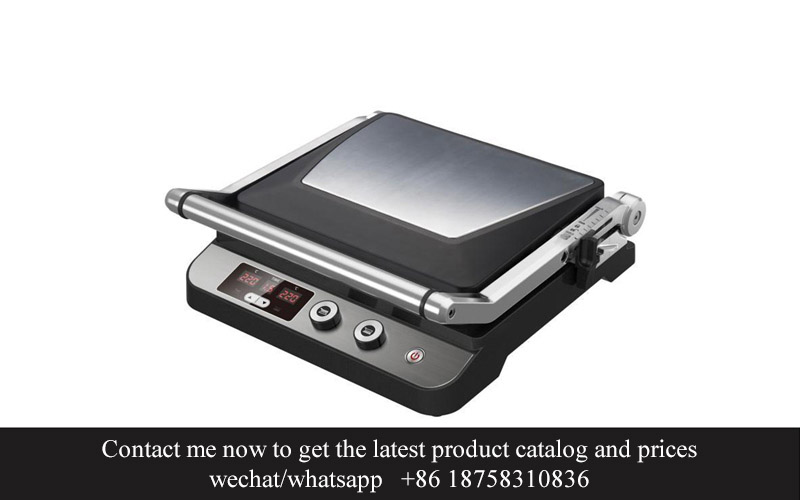
Navigating the complexities of certification for kitchen appliances can be a daunting task. Here’s a look at some common challenges and practical tips to ensure a smooth journey:
Understanding the Regulatory LandscapeThe first hurdle is often understanding the intricate regulatory landscape. Appliances must comply with not only UKCA (United Kingdom Conformity Assessed) standards but also EU regulations, which can vary widely. Brands need to familiarize themselves with the nuances of these standards to avoid costly mistakes.
Leveraging ExpertiseBrands that opt for turnkey solutions often tap into the expertise of certification firms. These firms understand the intricacies of both UKCA and EU regulations and can guide brands through the process. By doing so, they save time and resources that would otherwise be spent on trial and error.
Documentation and TestingOne of the most time-consuming aspects of certification is the documentation and testing process. Brands must provide detailed technical files, compliance reports, and undergo rigorous testing to ensure their products meet the required standards. Streamlining this process involves choosing a partner that offers efficient document management and a clear timeline for testing.
Addressing Non-ConformitiesEven with the best preparation, non-conformities can arise during the certification process. These issues can stem from a variety of factors, including design flaws or material changes. Brands need to be prepared to address these issues promptly and effectively. A turnkey solution provider can help by offering solutions and facilitating communication with testing laboratories.
Compliance with International StandardsIn addition to UKCA and EU standards, kitchen appliance brands often need to comply with international standards such as ISO (International Organization for Standardization). This requires a thorough understanding of various standards and the ability to navigate the certification process across different markets. A turnkey provider can assist with this complexity, ensuring that all necessary certifications are obtained.
Cost ManagementCertification can be expensive, with costs ranging from laboratory testing to compliance consultants. Brands must manage their budget carefully, ensuring that they are not overspending on unnecessary services. A turnkey solution can help by providing a comprehensive package that includes all necessary services at a competitive price.
Time EfficiencyTime is of the essence in the kitchen appliance industry, where products can quickly become outdated. Streamlining the certification process ensures that products can reach the market as quickly as possible. A turnkey provider can offer a fast-track service, minimizing delays and keeping products competitive.
Regular Updates and Compliance MaintenanceOnce a product is certified, brands must maintain compliance with all relevant standards. This includes regular updates to technical files and periodic retesting. A turnkey solution can include ongoing support, ensuring that brands stay up-to-date with any changes in regulations and maintain their certification status.
Case Study: A Brand’s JourneyConsider a small kitchen appliance manufacturer that wanted to expand into the EU market. Without a turnkey solution, the company faced numerous challenges. They had to navigate the UKCA and EU regulations, manage extensive documentation, and coordinate with multiple testing facilities. However, by partnering with a turnkey provider, they were able to:
This partnership not only saved the brand time and money but also allowed them to focus on product innovation and market expansion.
Final ThoughtsNavigating the certification journey for kitchen appliances can be fraught with challenges. However, with the right turnkey solution, brands can overcome these obstacles with ease. From understanding the regulatory landscape to maintaining compliance, a turnkey provider can be a brand’s trusted partner, ensuring a smooth and successful certification process.
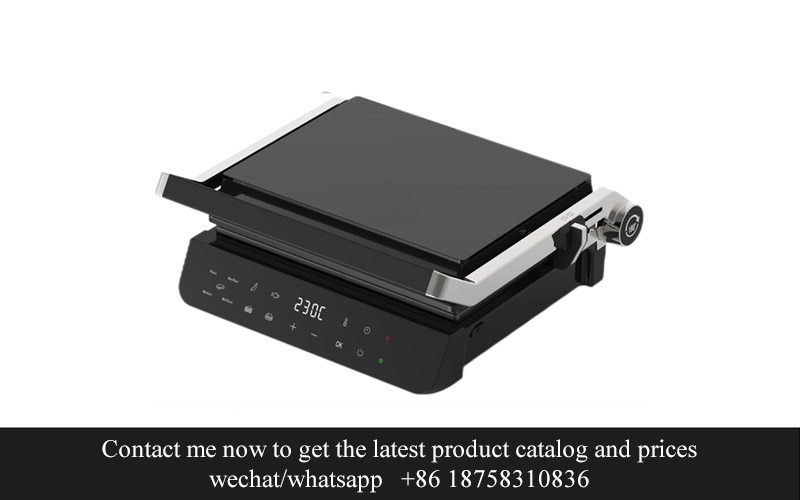
In the ever-evolving landscape of kitchen appliance certification, several future trends are shaping the way brands approach compliance and market entry. From advancements in technology to shifts in consumer preferences, here’s a glimpse into the future of kitchen appliance certification:
Technological Integration and Smart AppliancesThe integration of smart technology into kitchen appliances is not just a trend but a necessity. As appliances become more connected, the certification process will need to adapt to ensure these devices are not only safe but also secure against cyber threats. The future will see certifications that encompass both physical safety standards and cybersecurity protocols.
Sustainability and Energy EfficiencyWith growing environmental concerns, the kitchen appliance industry is under increasing pressure to produce sustainable and energy-efficient products. Certifications will likely evolve to include more stringent sustainability criteria, rewarding brands that prioritize materials recycling, energy-saving features, and eco-friendly production practices.
Globalization of StandardsAs the world becomes more interconnected, there will be a push for standardized certification processes across different regions. This could mean a harmonization of certification requirements, making it easier for brands to navigate multiple markets with a single certification.
Increased Focus on User ExperienceConsumer expectations are changing, and the kitchen appliance market is responding. Certifications may soon include assessments of user experience, encompassing aspects like ease of use, intuitive interfaces, and the ability to integrate with other smart home devices.
Rapid Innovation and Time-to-MarketThe pace of innovation in kitchen appliances is accelerating. Brands that can quickly bring new products to market will have a competitive edge. Certifications that offer expedited processes for innovative products will become more valuable, ensuring that cutting-edge appliances can reach consumers swiftly.
Regulatory Compliance and Risk ManagementThe future will see a heightened focus on regulatory compliance and risk management. Certifications will likely incorporate more robust systems for tracking and managing risks associated with product safety, ensuring that brands are prepared for potential recalls or safety issues.
Personalization and CustomizationWith the rise of customization, certifications may need to address the specific requirements of personalized kitchen appliances. This could involve certifying for a range of customizable options, ensuring that each product meets safety standards regardless of the customer’s choices.
Data Security and PrivacyAs kitchen appliances collect and process personal data, certifications will need to address the security and privacy implications. Brands will have to demonstrate that their appliances adhere to stringent data protection regulations, both for the sake of compliance and to build consumer trust.
Digital Transformation in Certification ProcessesThe certification process itself is likely to undergo a digital transformation. Online submission and tracking of certifications, along with automated audits and assessments, could become the norm, reducing administrative burdens and speeding up the certification timeline.
Consumer-Centric ApproachesConsumer feedback and market trends will play a bigger role in shaping certification requirements. Brands that can align their product development with consumer expectations and market demands will have a smoother path to certification.
Collaboration Between StakeholdersTo keep up with these trends, there will be a need for greater collaboration between appliance manufacturers, certification bodies, and regulatory authorities. This collaboration will help ensure that certification processes remain relevant and effective in the face of rapid technological advancements.
In conclusion, the future of kitchen appliance certification will be marked by a combination of technological innovation, sustainability, global harmonization, and a focus on user experience. Brands that stay ahead of these trends will be well-positioned to succeed in the dynamic and competitive kitchen appliance market.
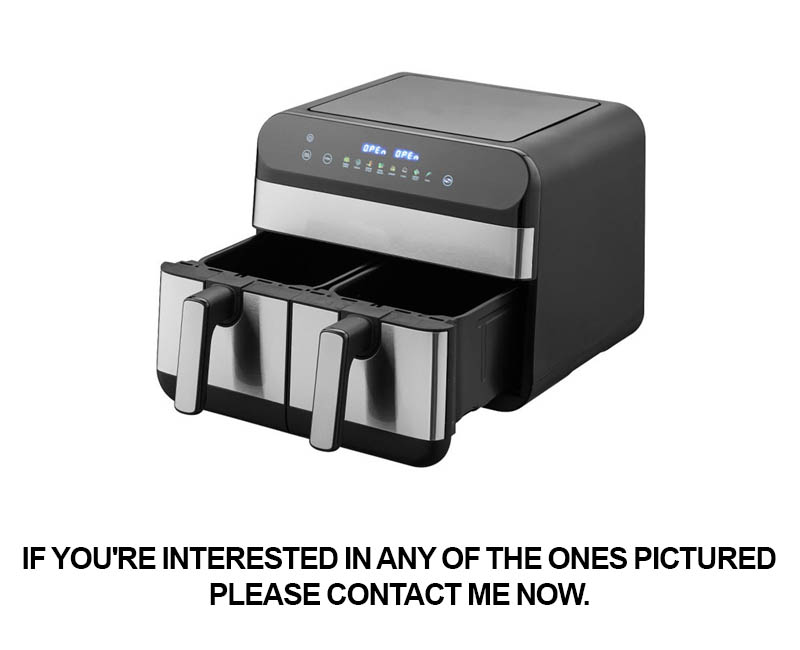
Understanding the complexities of the UKCA (United Kingdom Conformity Assessment) certification process can be daunting, especially for kitchen appliance brands looking to enter the European Union market. However, partnering with the right turnkey UKCA certification provider can simplify the process significantly. Here are some key aspects to consider when selecting a partner:
The Importance of ExpertiseFinding a partner with a deep understanding of kitchen appliance regulations and standards is crucial. They should be well-versed in the latest EU directives and UKCA requirements, ensuring that your products meet all necessary safety and performance criteria.
Customizable SolutionsA turnkey UKCA certification partner should offer services tailored to your specific product line. They should be able to adapt their approach to address the unique challenges of different kitchen appliances, from small countertop ovens to large commercial ranges.
Comprehensive SupportFrom initial product design to final certification, a reliable partner should provide comprehensive support. This includes guidance on technical documentation, assisting with compliance testing, and offering strategic advice to streamline the certification process.
Global ReachYour turnkey partner should have a network that spans the globe, with a presence in key markets. This ensures that they are up-to-date with local regulations and can facilitate the certification process in various EU countries efficiently.
Transparent CommunicationOpen and transparent communication is vital. A good partner should keep you informed throughout the certification process, explaining every step and providing regular updates on progress. This ensures that you are always in the loop and can address any issues promptly.
Certification EfficiencyLook for a partner that prioritizes efficiency without compromising on quality. They should be able to expedite the certification process without cutting corners, saving you both time and resources.
Post-Certification SupportCertification is just the beginning. A reputable partner should offer ongoing support, including any necessary re-certifications or updates to your product line as new regulations are introduced.
Customer TestimonialsBefore committing to a partner, review customer testimonials and case studies. This can provide insight into their track record, customer satisfaction, and the success of their previous projects.
Regulatory ComplianceEnsure that your partner stays ahead of regulatory changes. Compliance with UKCA and EU directives is not static; it evolves. A partner that is proactive in staying compliant can save you from future legal and financial pitfalls.
Cost-EffectivenessWhile cost should not be the only consideration, it’s important to choose a partner that offers value for money. They should provide a detailed quote that outlines all the services included in the turnkey solution, avoiding hidden fees.
FlexibilityYour kitchen appliance brand may expand or evolve over time. Choose a partner that can adapt to your changing needs, whether it’s scaling up production or entering new market segments.
Collaborative ApproachA good turnkey partner should work collaboratively with you, understanding your brand’s values and objectives. This partnership approach can lead to innovative solutions and a more seamless certification experience.
In conclusion, selecting the right turnkey UKCA certification partner involves considering a multitude of factors. From their expertise and support to their communication and flexibility, each element plays a critical role in ensuring a smooth and successful certification journey for your kitchen appliance brand.
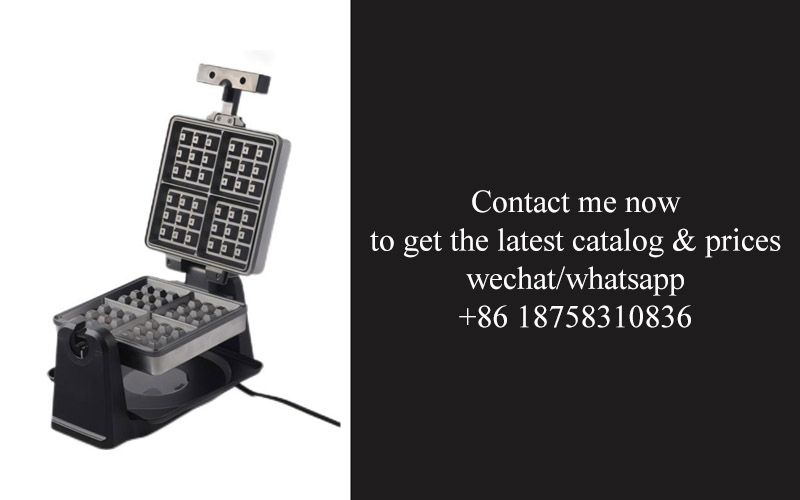
Navigating the complexities of the European Union (EU) market can be a daunting task for kitchen appliance brands. The UKCA (United Kingdom Conformity Assessment) certification is a critical step in this journey, ensuring compliance with EU regulations. Choosing the right turnkey UKCA certification partner can make all the difference. Here are some key factors to consider when making this important decision.
Understanding the Scope of Certification ServicesA reliable turnkey partner should offer a comprehensive range of certification services tailored to your specific needs. This includes not only the technical assessment of your products but also guidance on regulatory compliance, documentation preparation, and the submission process. Look for a partner that can provide end-to-end solutions to streamline your certification journey.
Experience and Expertise in the IndustryExperience is a vital component when selecting a certification partner. An established company with a track record of successful certifications in the kitchen appliance sector will likely have a deeper understanding of the unique challenges and requirements. Their expertise can be invaluable in navigating the intricacies of EU standards and regulations.
Quality Assurance and AccreditationEnsure that your chosen partner adheres to high standards of quality assurance. Look for certifications and accreditations that validate their competence, such as ISO 17025 for testing and calibration laboratories. A partner with these credentials can offer confidence that your products will meet the necessary requirements and be ready for the EU market.
Customization and FlexibilityEvery kitchen appliance brand is different, and a one-size-fits-all approach may not always be the best solution. Your turnkey partner should be able to customize their services to align with your specific product lines and business goals. This flexibility ensures that the certification process is efficient and meets your unique needs without unnecessary delays or additional costs.
Transparent Communication and Regular UpdatesEffective communication is key to a successful certification process. Your partner should maintain clear and open lines of communication, providing regular updates on the progress of your certification. This ensures that you are always informed and can address any issues that arise promptly.
Global Reach and Local KnowledgeA turnkey partner with a global reach can be beneficial, especially if you plan to expand into multiple EU countries. However, local knowledge is equally important. Your partner should have a strong understanding of the regional markets you are targeting, including any specific regulations or cultural nuances that could impact your certification process.
Cost-Effective SolutionsWhile quality and expertise are crucial, so is cost-effectiveness. Your partner should offer competitive pricing without compromising on the quality of their services. Look for transparency in pricing, so you know exactly what you are paying for, and ensure that the cost of certification aligns with your budgetary constraints.
Post-Certification SupportThe process doesn’t end with certification. A good turnkey partner will offer ongoing support to help you maintain compliance with EU regulations. This can include assistance with any necessary updates or changes to your products and market strategies.
Case Studies: Success Stories with Turnkey UKCA CertificationTo illustrate the value of a turnkey certification partner, let’s look at a few success stories. Company X, a small appliance manufacturer, faced challenges with the UKCA certification process due to their limited knowledge of EU regulations. After partnering with a reputable certification firm, they successfully obtained certification, which opened doors to the EU market. Similarly, Brand Y, a large kitchen appliance brand, streamlined their certification process with the help of a turnkey partner, reducing their time to market significantly.
Navigating the Challenges: Tips for a Smooth Certification JourneyThe certification journey can be fraught with challenges. Here are some tips to help ensure a smooth process:
Future Trends in Kitchen Appliance CertificationLooking ahead, several trends are shaping the kitchen appliance certification landscape:
Conclusion: Unlocking EU Market Potential with Turnkey UKCA CertificationIn conclusion, the right turnkey UKCA certification partner can be a game-changer for kitchen appliance brands looking to enter the EU market. By understanding the key features of a turnkey certification process, navigating the challenges effectively, and staying ahead of future trends, brands can unlock the full potential of the European market. With the right partner by your side, the journey to certification becomes less daunting and more rewarding.